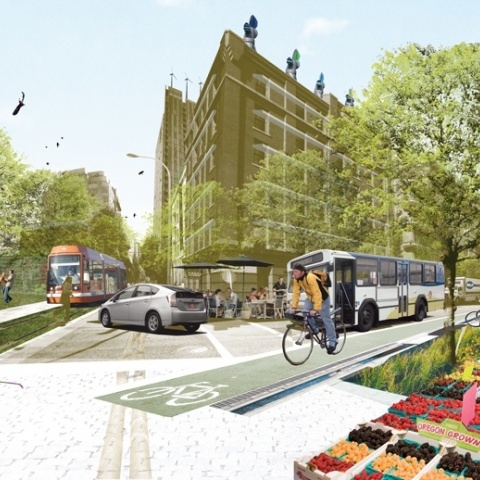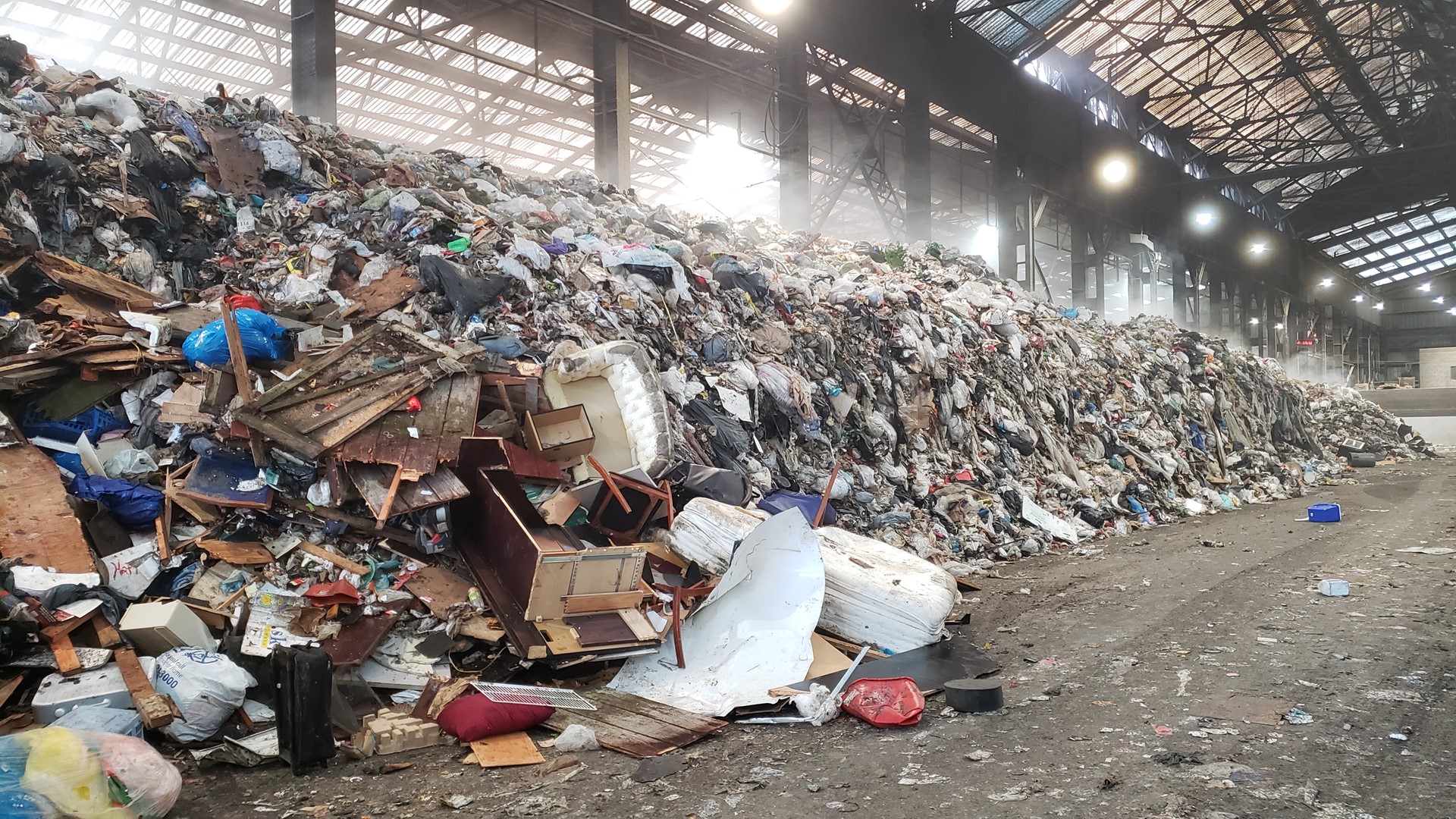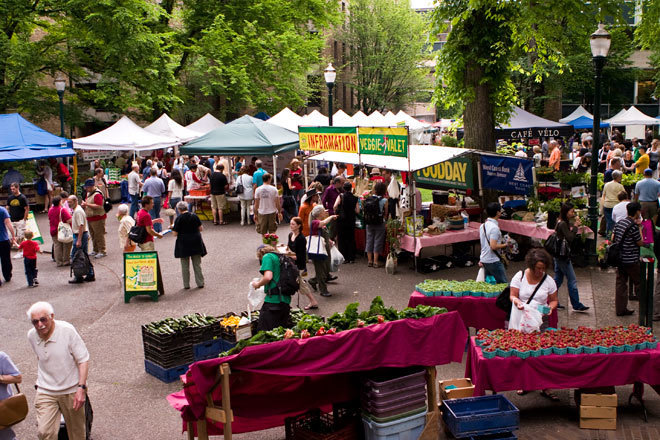Growing up both my parents were architects for different companies. My mother is Intel, and my father ran his own company. He does not have a page really but is well known in some of the houses he designed. But the one struggle that he tends to find is more projects like these.
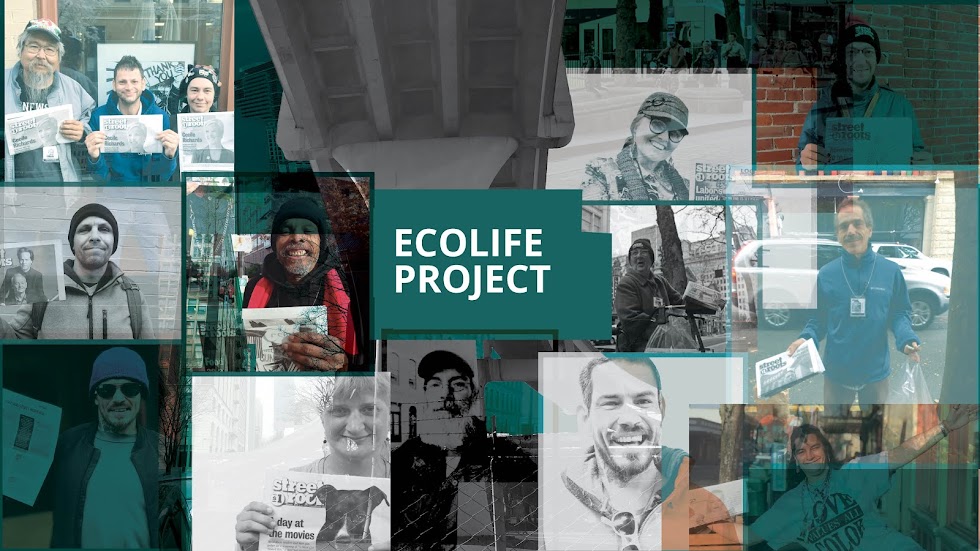
Welcome to EcoLife! This blog, which is hosted by Portland State University students, aims to motivate, inform, and inspire change. We want you to learn about the complicated issues surrounding homelessness, while going beyond the tip of the iceberg. We hope to establish a connection with you through our posts regarding the lives and experiences of homeless individuals, expressed in these numerous stories and articles. We hope you enjoy our blog!
Wednesday, February 28, 2024
Find work for Self Employed Architects
Thursday, February 22, 2024
Healthcare and Homelessness: A Battle of Data Sharing
For decades, healthcare and homelessness have butted heads in regards to data sharing and medical records. Many hospitals, for the longest time, held medical records under a patients permanent address, causing issues for the homeless to keep up date on their charts. Thanks to Community Solutions' "Built for Zero", a new pilot project that started in 2020 to help the homeless receive better healthcare, hospitals are now allowed to share patient information with services that the patient may be receiving. In Washington County, Oregon, this new pilot project is taking effect, with Kaiser Permanente partnering with local health organizations to help rapidly increase information on ones medical history.
 |
| Photo: Oregon Live |
Tuesday, February 20, 2024
Minimizing Your Digital Footprint: A Guide to More Sustainable Online Practices
In an age where our lives are increasingly interwoven with the digital world, the concept of a "digital footprint" has become as significant as our physical impact on the planet. Every tweet sent, every email dispatched, every video streamed contributes to an invisible trail we leave in the digital ether. While the internet's carbon footprint might not be as visible as that of cars or factories, it is no less consequential. Data centers, the backbone of our online existence, consume vast amounts of electricity, much of it generated from non-renewable sources. This energy consumption contributes to greenhouse gas emissions, exacerbating global climate change. Furthermore, our online activities contribute to a growing demand for electronic devices, which in turn fuels the cycle of manufacturing, usage, and disposal that contributes to a significant amount of electronic waste each year.
Understanding Your Digital Footprint
Your digital footprint is the record of your interactions in the digital environment, encompassing everything from your browsing history to your social media activity. It's divided into two main categories:
1. Active Digital Footprint:
- This includes data you deliberately submit online. Posting on social media, sending emails, commenting on forums, and online shopping transactions all contribute to your active footprint. While these actions are often made with a specific purpose, they leave behind data that can be stored, analyzed, and, in some cases, monetized by third parties.
2. Passive Digital Footprint:
- This is data collected about you without your active participation. It includes information gathered from your browsing habits, such as websites visited, search queries, and even the time spent on certain pages. Cookies and other tracking technologies enable companies to compile this data, often used to personalize advertising and content.
Strategies for Reducing Your Digital Footprint
Reducing your digital footprint involves both minimizing the data you contribute to the digital ecosystem and being mindful of the environmental impact of your online activities. Here are several strategies that can help individuals make a more positive impact on both privacy and sustainability:
1. Streamline Your Email
- Unsubscribe from Unnecessary Newsletters: Regularly review your email subscriptions and unsubscribe from those you no longer read. This reduces the energy used to store emails on servers.
- Use Emails Wisely: Avoid sending emails with large attachments. Opt for cloud-sharing services for big files and encourage brief communications to reduce storage needs.
2. Social Media Mindfulness
- Audit Your Accounts: Deactivate or delete accounts you no longer use to prevent unnecessary data storage and processing.
- Limit Sharing: Think before you post. Reducing the frequency of your posts can decrease the data stored and processed by social media platforms.
3. Smart Browsing
- Use Eco-Friendly Search Engines: Opt for search engines that offset carbon emissions or contribute to environmental causes.
- Enable Ad Blockers and Tracking Protection: This reduces the amount of data websites can collect and store, which in turn can decrease the energy required for data processing and storage.
4. Digital Clutter Clean-up
- Regularly Delete Old Files and Emails: Keeping your digital storage lean not only helps with organization but also reduces the energy used for data storage.
- Close Unused Online Accounts: Every online account is a digital footprint. Close accounts you no longer need or use.
5. Sustainable Device Use
- Extend the Life of Your Devices: Use smartphones, computers, and other electronics for longer periods before upgrading. Manufacturing and disposing of these devices have significant environmental impacts.
- Recycle Electronics: Properly recycling or donating old electronics prevents harmful materials from ending up in landfills and reduces the need for new raw materials.
7. Support Green Technology
- Advocate for Renewable Energy: Support internet service providers and tech companies that use or plan to transition to renewable energy sources.
- Invest in Energy-Efficient Gadgets: When it's time to upgrade, choose devices with a lower environmental impact or certified for energy efficiency.
8. Educate and Raise Awareness
- Share Knowledge: Educate friends, family, and colleagues about the importance of reducing their digital footprint. Awareness can lead to collective action and greater impact.
Implementing these strategies can lead to a significant reduction in your digital footprint, benefiting both your privacy and the planet. It's about making more conscious choices in our digital lives, leading to a more sustainable future. Understanding and reducing our digital footprint is a crucial step towards a more sustainable and environmentally friendly digital presence. While the internet and digital technologies offer incredible benefits, they also come with an environmental cost that cannot be ignored. By adopting strategies such as streamlining emails, practicing social media mindfulness, embracing smart browsing habits, minimizing digital clutter, using devices sustainably, reducing streaming quality, supporting green technology, and spreading awareness, we can significantly decrease our digital footprint. Each action, no matter how small it may seem, contributes to a larger collective effort to reduce the energy consumption and carbon emissions associated with our digital activities. As we become more conscious of our online habits, we not only protect our privacy but also contribute to a healthier planet. Let's embrace these changes and encourage others to do the same, fostering a digital ecosystem that prioritizes sustainability and environmental responsibility. Together, we can make a difference, ensuring a greener, more sustainable future for all. Here are some articles below to help get you started on minimizing your digital footprint.
- Reduce Your Digital Footprint
- 4 Ways to Reduce Your Digital Footprint
- Digital Footprint: Definitions, example, and wow to reduce
Emily Le
Monday, February 19, 2024
Houselessness, Mental Health Conditions, and Drug Abuse, Is There a Correlation?
There will be a link for a survey at the end of this post, if you can please take it!
link for survey
Tackling Food Waste in Portland, Oregon: A Sustainable City's Initiatives
Photo: Oregonlive.com
Portland, Oregon, often lauded for its commitment to sustainability, stands at the forefront of the battle against food waste. The city's innovative initiatives and community-driven programs underscore a collective dedication to creating a more environmentally conscious and waste-conscious society.
Turn Scraps into Soil
Small-scale food enterprises generating less than 250 pounds of food waste per week, roughly equivalent to a single 60-gallon roll cart, currently do not bear the mandatory obligation to compost. Nevertheless, these establishments are warmly encouraged to align with the 1,300+ Portland businesses already participating in composting initiatives. Embracing this sustainable practice not only contributes to the collective environmental ethos of the city but also establishes a harmonious synergy with the 1,300+ businesses championing responsible waste management in Portland. According to Oregon.gov, a staggering 70% diversion of total waste from landfills through composting initiatives in the preceding year 2030 This isn't just a numerical achievement; it's a testament to the city's commitment to transforming organic waste into a valuable resource, enriching the soil, and championing a circular economy. Through the city's comprehensive composting programs, food waste undergoes a remarkable journey, transitioning from discarded remnants to nutrient-rich soil.
Photo: Oregon Metro
Education stands as a cornerstone in Portland's concerted efforts to combat the pervasive issue of food waste. At the forefront of this mission are engaging and thoughtfully crafted campaigns, orchestrated to illuminate the broader community about the profound environmental consequences associated with wasted food. The city's proactive approach extends beyond mere dissemination of information; it involves actively raising awareness among residents and businesses alike. Empowering individuals with knowledge becomes a catalyst for collective action, prompting a paradigm shift in the way Portlanders approach food consumption and disposal. In this vibrant city, education is not merely a tool; it is the cornerstone of a cultural transformation, fostering a conscious and responsible ethos that permeates every aspect of daily life. As Portland actively fosters a culture of consciousness, it steers the community towards a shared commitment to sustainable living, where every informed choice becomes a step towards a greener, more eco-conscious future. For more information about preventing food waste, click here!
Ensuring Shelter: Portland's Commitment to Providing Safe Spaces for the Homeless
Portland was ranked #12 United States cities with the largest homeless population in 2023. This is quite a significant jump in the rankings considering Portland was ranked #25 in 2021.
The causes of homelessness are multifaceted, resulting in individuals facing various struggles and circumstances. Drug abuse, addiction, domestic violence, and mental and physical health issues are just a few potential contributing factors. However, one overarching issue unanimously acknowledged by experts is the lack of access to stable and affordable housing for those with low incomes. In Portland, this housing shortage is not a recent phenomenon; it has persisted for nearly a century. With urban renewal in the 1950s and 60s and an influx of migrants in the early 2000s, the availability of affordable housing dwindled and became significantly more competitive.
Despite Portland's growing efforts to address the increase in homelessness, it is evident that there remains a clear lack of funding and staffing to adequately tackle this issue. Literature has extensively documented the detrimental effects of homelessness on individuals' mental and physical well-being, as well as on community health. To learn about current initiatives and how you can contribute to addressing this community issue, please visit Oregon Housing and Community Services. For further information on the historical context, systemic challenges, and innovative solutions surrounding homelessness in Oregon, visit the OPB article by Alex Zielinski.
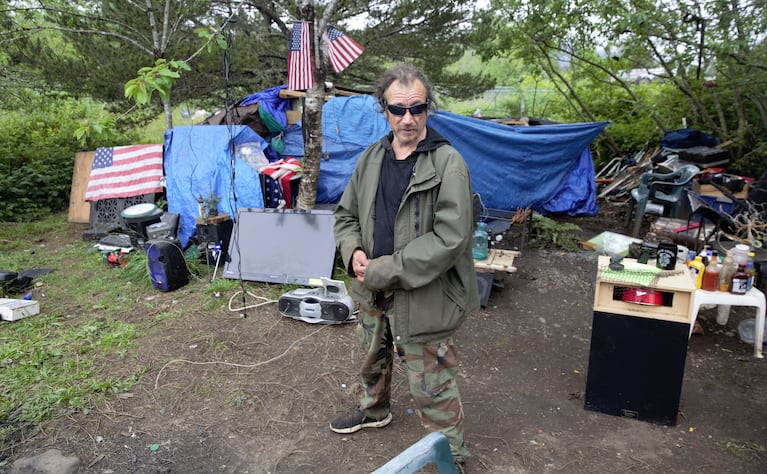 |
Kristian Foden-Vencil / OPB
Friday, February 16, 2024
The Rise of Zero Waste Living in Portland: Tips for Reducing Household Waste
- New Seasons Market
- Zero Waste PDX
- People's Food Co-op
- Portland Farmers Markets
- The ReBuilding Center
- The Realm Refillery
- Replenish Refill shop Photo above from Replenish Refill Shop
Why it matters?
Eco Friendly renovations for Portland OR homeowners; Environmentally sustainable living
Why go green?
In order to improve our environment we need to start making individual changes. Everyone doing their part creates a closer step into environmental sustainability. Eco friendly renovations around the home could seem like small changes but could ultimately have huge benefits to our environments. It could overall bring many benefits to live in an eco-friendly household. Energy efficient, cost effective and environmentally sustainable are some of the characteristics of these eco friendly homes.
From reducing carbon footprints and minimizing energy consumption to creating healthier indoor environments and drastic economic savings, the advantages of taking part in eco friendly housing is much deeper than just taking care of our environment it also brings many benefits to your finances.
WHAT CAN WE DO?
Energy efficient windows and doors
Upgrading to energy efficient windows and doors can reduce the heat loss during the winter and heat gain during the summer. This can diminish the reliance many have on heating and cooling systems .Solar Panels
Solar panels on your roof while also looking really futuristic allows for clean, renewable energy to generate from the sunlight. This will benefit you and lower your electricity bill over time as well as reduce your dependance on fossil fuels .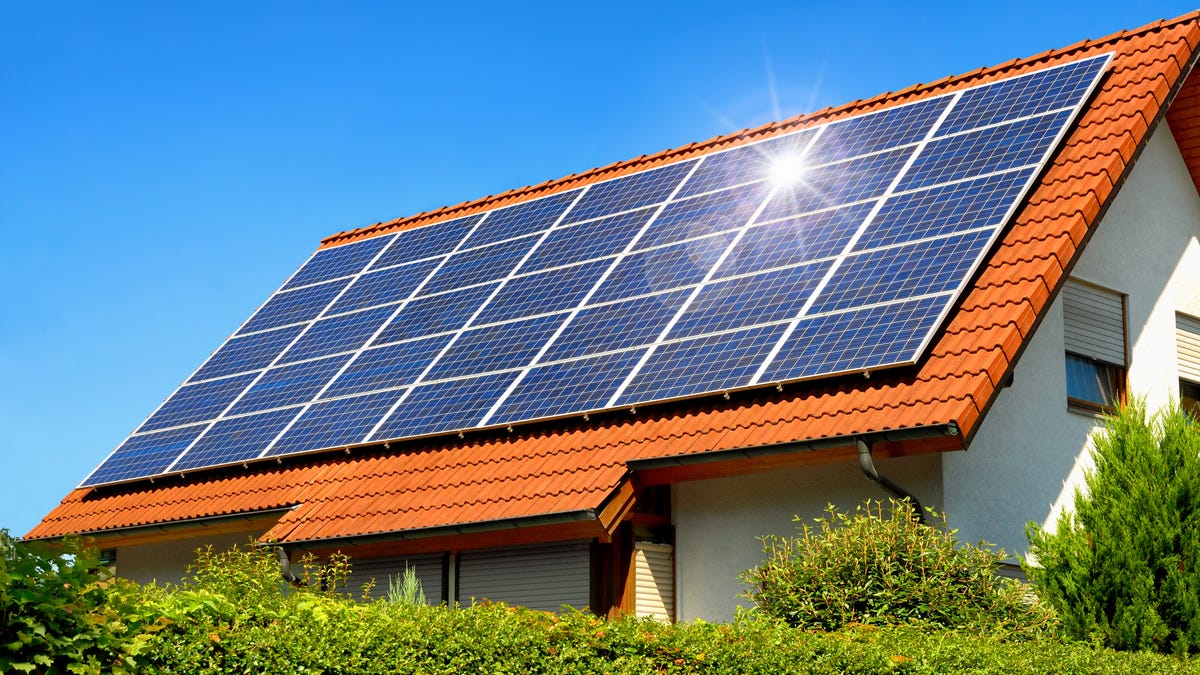
Energy efficient appliances
These appliances will also save you money on utility bills and reduce your homes carbon foot print. These also consume much less energy than regular appliances.LED Lighting
While it doesn't seem like it would make a drastic change, LED lightbulbs actually have a drastic impact on amount of energy used and use a lot less than regular traditional bulbs. These also last longer than regular bulbs so its a win win at the end for the homeowner. Reducing both energy consumption and waste plus saving money, easy win.
Water saving fixtures
Installing low flow faucets , shower heads and toilets to reduce water usage can also make a huge difference. Doing this doesn't affect the performance of the fixtures but it does save you money on your utility bills and water usage overall.
Rainwater Harvesting system
Setting up a rainwater harvesting system can be very beneficial especially living in Portland where its always raining . This will collect water from your roof and gutters and the water can then be used for landscaping, flushing toilets, washing clothes etc. It would benefit your reliance on municipal water sources.:max_bytes(150000):strip_icc()/rainwater-harvesting-system-isometric-diagram-1201105579-34cb7b27492f42c387b89fd903a16ba4.jpg)
In conclusion, becoming an ecofriendly home can benefit our environment and our community as well as your overall expenses. Going green is only beneficial in the long run and could be a huge improvement towards bettering our planet. Going green can involve starting with some of the examples I provided above. These is just one step closer to an eco friendly world.
15 benefits of an ECO friendly lifestyle you can experience now. Daybring. (2022, April 18). https://daybring.com/stories/benefits-of-an-eco-friendly-lifestyle/
Ourclients. (2023, March 27). The rise of Green Advantage Homes: Why Portland, Oregon is embracing sustainable living. Portland Custom Home Builder. https://stonecreekbuilding.net/the-rise-of-green-advantage-homes-why-portland-oregon-is-embracing-sustainable-living/
Tuesday, February 13, 2024
The Housing Crisis in Portland, Oregon: A Struggle For Residents and Catalyst for Homelessness
 |
| Source: City Journal |
The housing situation in Portland, Oregon, is severe, with people finding it difficult to make ends meet on their mortgage and rent. The housing crisis in Portland is characterized by the sharp rise in housing and rental costs, the scarcity of reasonably priced housing, and the rising number of people who are homeless.
The housing crisis in Portland can be attributed to a combination of factors, including rapid population growth, limited housing supply, rising rental costs, and stagnant wages. According to the U.S. Census Bureau, between 2010 and 2020, Portland's population grew by approximately 13%, outpacing the rate of new housing construction. Portland is in a 140,000 house deficit. This imbalance has created a scarcity of affordable housing options, pushing many individuals and families to the brink of homelessness.
Furthermore, according to recent data, Portland's median house sale price is 16% higher than the national average. Overall cost of living in Portland is 21% higher than the national average. For many locals, homeownership is becoming increasingly unaffordable due to the price spike.
With more than 50% of renters spending more than 30% of their income on housing, Portland has one of the greatest rental cost burdens in the country. Little money is left over for other necessities like healthcare and education.
| Source: OPG.org |
Portland's rising homelessness rate is directly related to the city's lack of affordable homes. Around 4,000 people were homeless on any given night, according to the Portland Housing Bureau's 2020 Point-in-Time Count. Of them, a sizable percentage claimed that their inability to find affordable accommodation was the main cause of their homelessness. According to the 2022 national homelessness report, Oregon saw the second-highest increase in homelessness in the nation, after California, with a 22% increase between 2020 and 2022. During those two years, 2,591 more Oregonians lost their homes.
Impact on Residents:
For Portland's citizens, the housing crisis has had far-reaching effects:
1. Displacement: Increasing housing costs have driven out a large number of long-term inhabitants, upsetting established communities and weakening social bonds.
2. Financial Strain: Many inhabitants are experiencing financial strain due to the high cost of housing, which lowers their quality of life and increases financial stress.
3. Inequality: The housing crisis has exacerbated existing inequalities, disproportionately affecting low-income individuals, communities of color, and vulnerable populations such as seniors and people with disabilities.
Potential Solutions:
Addressing the housing crisis and reducing homelessness in Portland requires a multi-faceted approach. Here are some potential solutions:
Boost the Supply of Affordable Housing: One way to address the scarcity is to promote the building of affordable housing by offering incentives and forming alliances with developers. Furthermore, affordable housing alternatives for new buildings can be guaranteed by the implementation of inclusionary zoning rules.
Rent Control and Tenant safeguards: Rent control policies that are put into place and tenant safeguards that are reinforced can help stabilize rental costs, stop unfair evictions, and give vulnerable populations more security.
Supportive resources and Outreach: Increasing the availability of resources that can aid those who are homeless in regaining stability and reintegrating into society, such as job training, drug treatment, and mental health counseling, might be beneficial.
Cooperation and Finances: Encourage cooperation between governmental organizations, nonprofits, and stakeholders in the corporate sector to share resources and create all-encompassing plans. obtaining more financing for projects aimed at preventing homelessness and affordable housing
What can you do?
Residents Organizing for Change (ROC) “is a statewide network of residents of affordable housing, those in need of, and front-line staff of affordable housing providers that are committed to advocating for safe, stable, and affordable housing for all Oregonians.” Their goals include passing legislation to make housing more affordable for Portland residents. I strongly advise you to read their priorities, and consider a donation. Through their work, and your support, we can help to minimize the Portland Housing Crisis.
Listed priorities:
https://residentsorganizingforchange.org/priorities/
Donation link:






